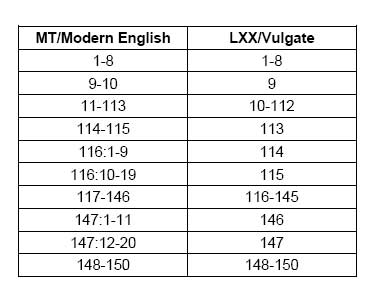Happy Thanksgiving Day!
Yes, up here in Canada, we celebrate Thanksgiving Day this weekend (technically tomorrow). So I have already had some turkey with my in-laws and tomorrow we go to my brother’s house.
I’ve been teaching a Psalms class this semester and just this last week we were looking at Thanksgiving Psalms. Thanksgiving psalms are closely related to hymns (some scholars such as Westermann don’t make a big distinction between thanksgiving psalms and hymns). The difference is one of focus: while hymns offer more generic praise to God, thanksgiving psalms focus on praising God for deliverance from a particular distress. Significantly, the Hebrew word for “give thanks” (תודה) cannot be limited to the meaning of the English word “to thank.” The word has the wider connotation of “acknowledge,â€? “confess,â€? and “proclaim.â€? It is often used in parallel with verbs meaning “praiseâ€? (e.g., תהלה in Pss 100:4; 69:30[31]), or “recountâ€? (ספר in Ps 26:7). It is also the term used for a “thank offeringâ€? in Pss 50:14, 23; 56:12[13]; and 107:27. There is not a single instance in the Old Testament/Hebrew Bible where the phrase “to thank” is used between people. Instead, the verb “to blessâ€? (ברך) is used (e.g., Deut 24:13; 2 Sam 14:22; Job 31:20; Neh 11:2).
It is more than likely that the community songs of thanksgiving were used in the major festivals at the temple. The individual songs of thanksgiving, on the other hand, were composed for recitation at the temple as an expression of a person’s praise to God for deliverance from a concrete distress, such as illness. Since the word usually translated “thanksgiving” is the same word used for “thank offering” (e.g., Pss 50:14, 23; Jonah 2:9), it seems clear that these psalms were intended to be used in a cultic setting. On such an occasion the individual, in the presence of the worshiping congregation, testified personally to God’s saving deeds to the accompaniment of a ritual act (e.g., Jer 33:11). Or the psalmist would go with family and friends to the temple (or some smaller gathering, if you follow the likes of Gerstenberger) where the individual would give thanks to God. Then he would invite those gathered to listen to his story about how God had answered his prayer. Sometimes the psalmist would also give some advice on the basis of his experience and then they would all share the meat from the sacrifice.
This scenario (called “Sitz im Leben” by scholars such as myself) can teach us something about being thankful. What I find particularly significant is the communal nature of thanksgiving. It wasn’t something that was kept private. In contrast, it was shared with friends and family. So this Thanksgiving weekend as you gather with family and friends, give thanks together. And if you are not celebrating Thanksgiving Day this weekend, I hope that you too will find something to be thankful for in your life.
Psalm 30
A Psalm. A Song at the dedication of the temple. Of David. 1 I will extol you, O Lord, for you have drawn me up,
and did not let my foes rejoice over me.
2 O Lord my God, I cried to you for help,
and you have healed me.
3 O Lord, you brought up my soul from Sheol,
restored me to life from among those gone down to the Pit.
4 Sing praises to the Lord, O you his faithful ones,
and give thanks to his holy name.
5 For his anger is but for a moment;
his favor is for a lifetime.
Weeping may linger for the night,
but joy comes with the morning.
6 As for me, I said in my prosperity,
“I shall never be moved.�
7 By your favor, O Lord,
you had established me as a strong mountain;
you hid your face;
I was dismayed.
8 To you, O Lord, I cried,
and to the Lord I made supplication:
9 “What profit is there in my death,
if I go down to the Pit?
Will the dust praise you?
Will it tell of your faithfulness?
10 Hear, O Lord, and be gracious to me!
O Lord, be my helper!�
11 You have turned my mourning into dancing;
you have taken off my sackcloth
and clothed me with joy,
12 so that my soul may praise you and not be silent.
O Lord my God, I will give thanks to you forever.



